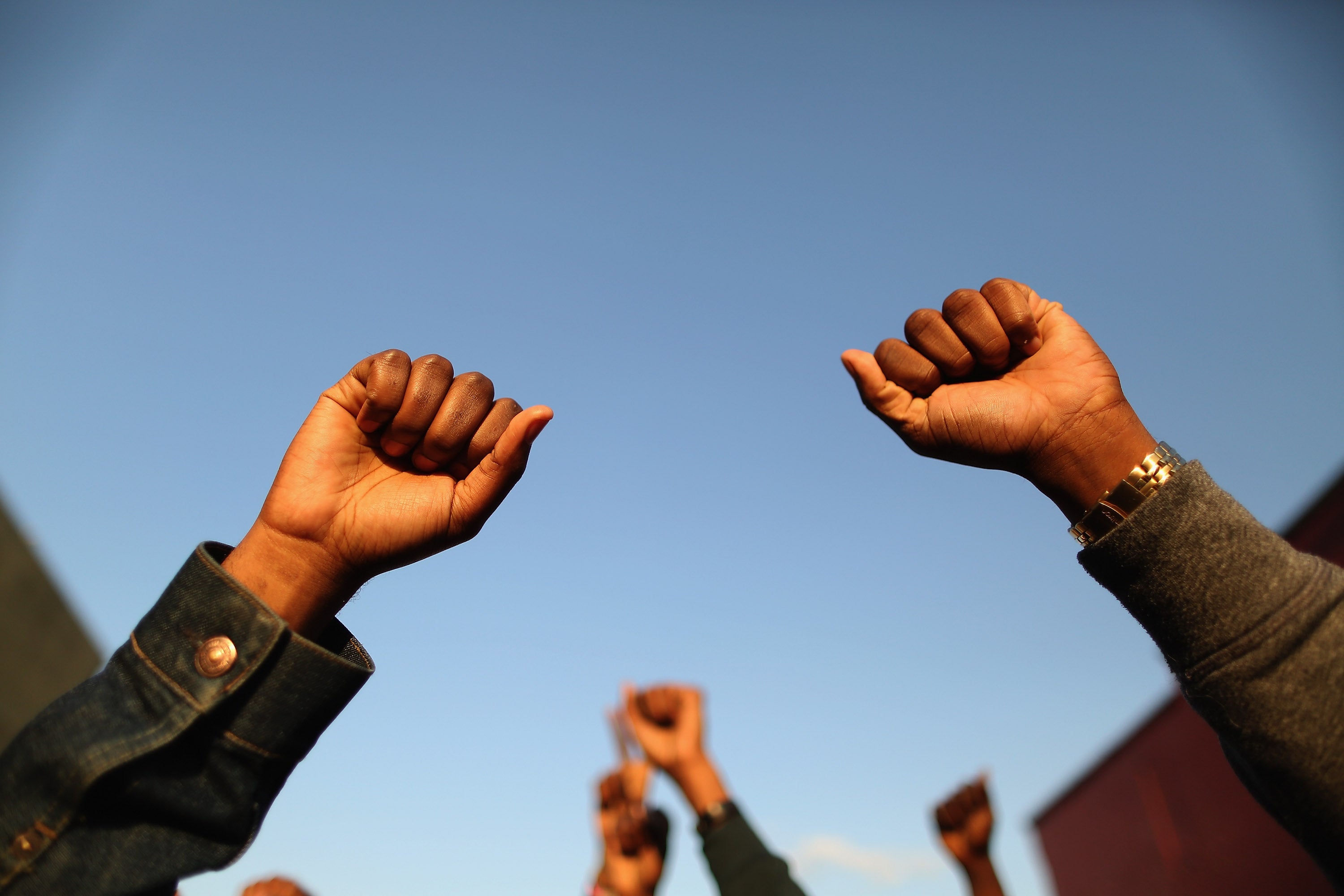
St. Louis police officer, Jason Stockley, was standing mere inches away from Anthony Lamar Smith when he shot and killed him. Earlier this month — on the 54th anniversary of the Birmingham 16th Street Baptist Church Bombing — Stockley was acquitted of all charges.”
Throughout my education, the story of America was told in very specific terms: English settlers, pesky neighbors from all over, a tea party, a dispute between the North and South over owning human beings, huddled masses, two good wars, women and people of color demanding stuff and never-ending glory. The stain of slavery, patriarchy, indigenous genocide and other ills were roundly downplayed.
In other words, the White perpetrators of racial and sexual violence have always been acquitted.
I’m a Kenyan immigrant who grew up in the Bronx with kids from all kinds of backgrounds — from Jewish to Dominican to Irish to Russian to African American and more. Our interpretation of the American Dream was grounded in the understanding that we are a nation of immigrants.
But whether it’s Trump’s mischaracterization of counter protesters in Charlottesville, repealing a ban on military weapons for police departments, or the decision to end DACA, we are daily reminded of how our nation has repeatedly lost sight of the potential to build an American Dream in favor of maintaining white supremacy.
By 2050, for the first time since Manifest Destiny, the United States will be mostly Black and Brown. Some people argue that these changing demographics take away from what has made America great. What they mean is that the privilege and security that white supremacy provides White people is being threatened. Now more than ever, we must affirm that the greatest truth of America isn’t about maintaining whiteness, though it definitely looks that way. America’s greatest truth is found in the obstacles that people of color, immigrants, and other marginalized communities must endure in order to defend their place here, embodying the struggle for a more perfect union.
The reality is that the organizing principle and ideology of white supremacy, which gives shape to everything in America, is a lie. It says that White people are superior to everyone and therefore entitled to concentrated, uncontested power to legislate everything from housing to education to politics to who looks like they deserve to live. What some won’t acknowledge is that, save for the First Nations, every U.S. resident is from another country.
That’s irrefutable.
Also factual is that most White citizen’s families came to America under duress from wars, poverty, religious persecution or limited opportunity and shed their ethnic heritage to become “White.”
White supremacy maintains white privilege through laws, policies, and practices, and it’s running out of people to uphold it. Instead of seeing this moment as an opportunity to address a horrendous legacy of exploitation and move forward in community, a powerful few see this as their last chance to maintain power and control by preying on the livelihood of others who haven’t had the benefits of a system that is rigged in their favor. They refuse to acknowledge that even in America’s so-called “great” past, there were always Black and Brown faces and folks with different accents singing the National Anthem.
Instead, they shoot the unarmed and fear the immigrant. They tell us there’s no place for us in their dream.
From profiling to policing to pardoning, accessing the American Dream is about power. It takes power to maintain white supremacy, it will take a different kind of power to defeat it. The promise of the American Dream and our political ideals are embodied by those who understand that the gift of opportunity means breaking down walls so that those behind us may walk free.
It’s time for people who believe in the American Dream to vocally and visibly support its true protectors: the ones who dare to dream. It’s past time for Americans, of all backgrounds, to confront white supremacy. It’s time to March for Racial Justice.
The March for Racial Justice is a Black and Indigenous led multi-community movement united in our demands for racial equity and justice. On September 30, we will mobilize organizations, groups and individuals, to stand together for racial justice in Washington, DC. For more information on how to join the march or to find a sister march near you, please visit www.m4rj.com.
Agunda Okeyo is a writer, producer, filmmaker and activist driven to challenge inequality, politics and culture in the U.S. and abroad. She is currently serving as Communications Chair for the March for Racial Justice.
